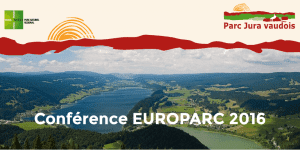We are Sustainable Farmers!
Liesjärvi National Park © Tuomas Uola (FI)
During millennia, men have been sculpting landscape with farming and pasture lands, creating complex ecosystems where men and nature cooperated in harmony. Thousands of species have adapted and currently depend on these agroecological structures and men developed an intimate relation between food production and cultural heritage.
However, in a rapidly urbanized population, people are losing contact with their food sources, while modern production practices – large monocultures and use of pesticides – threatens our biodiversity and food safety. Protected areas have the potential to be places where people and farming can live, work and learn how to manage the land sustainably.
How can we make farming in and near protected areas more nature friendly? What are the needs of farmers in their relationship to a protected area? How do we develop local products and brand them with the park?
 During EUROPARC Conference 2016, we will be finding solutions together for sustainable agriculture practices and farmers engagement in protected areas. “We are Sustainable Farmers” brings examples from across Europe, and will discuss how we can achieve a better understanding between nature conservation and farming perspectives.
During EUROPARC Conference 2016, we will be finding solutions together for sustainable agriculture practices and farmers engagement in protected areas. “We are Sustainable Farmers” brings examples from across Europe, and will discuss how we can achieve a better understanding between nature conservation and farming perspectives.
Sustainable Agriculture: European Perspectives
The Wicklow Uplands Council, Ireland
In response to the challenges facing the uplands (caused by the decrease of sheep grazing and growth of uncontrolled wildfires), cross community discussions have been taking place in Wicklow, over the last four years, to develop a new consensus based approach to upland management which seeks both to restore biodiversity and support a recovery in upland farming. The Wicklow Uplands Council will share how they have been involving the population for the establishement of a Working Group with representation from local and national stakeholders.
West-Estonian Islands Partnership LAG, Estonia
In the province of Saarema, LAG is supporting the creation of nature-based businesses with the local and traditional products. They provided training and organised several activities to promote cooperation and share of experiences among small farmers. By working directly with the local communities, and investing in infrastructures for co-production and innovation, they were able to stimulate local entrepreneurship and developed a regional brand for products. LAG will be sharing the bottom up approach and the results of the project.
More about Sustainable Agriculture
Agrobiodiversity is the result of years of interaction between man and the environment. It is the virtuous small-scale producers, farmers and artisans who, with their work, contribute to safeguarding biodiversity, ecosystems, the landscape, plant varieties and animal breeds in every corner of the world. Small-scale food producers are the most important guardians of agrobiodiversity. The creation of alliances between protected areas and local farming will mean being able to:
- put into effect good practices for environmental sustainability in agriculture
- add value to local production, offering a future to the traditional knowledge of rural culture
- promote local social and economic development, contributing to preserving the diversity of parks’ habitats and endemic species
- give significant added value to the parks and agricultural businesses involved, creating places where agrobiodiversity can be promoted.
Additionally, joint initiatives of education and awareness-raising aimed at the public are essential to spread the awareness that all together, with our choices as consumers, we can have a crucial impact on the safeguarding of biodiversity.
EUROPARC and Slow Food are working together to promote closer cooperation for sustainable agriculture and biodiversity among Protected Areas and local producers, and as part of our joint cooperation, we are pleased to publish the leaflet “Agriculture and Biodiversity in Protected Areas”.